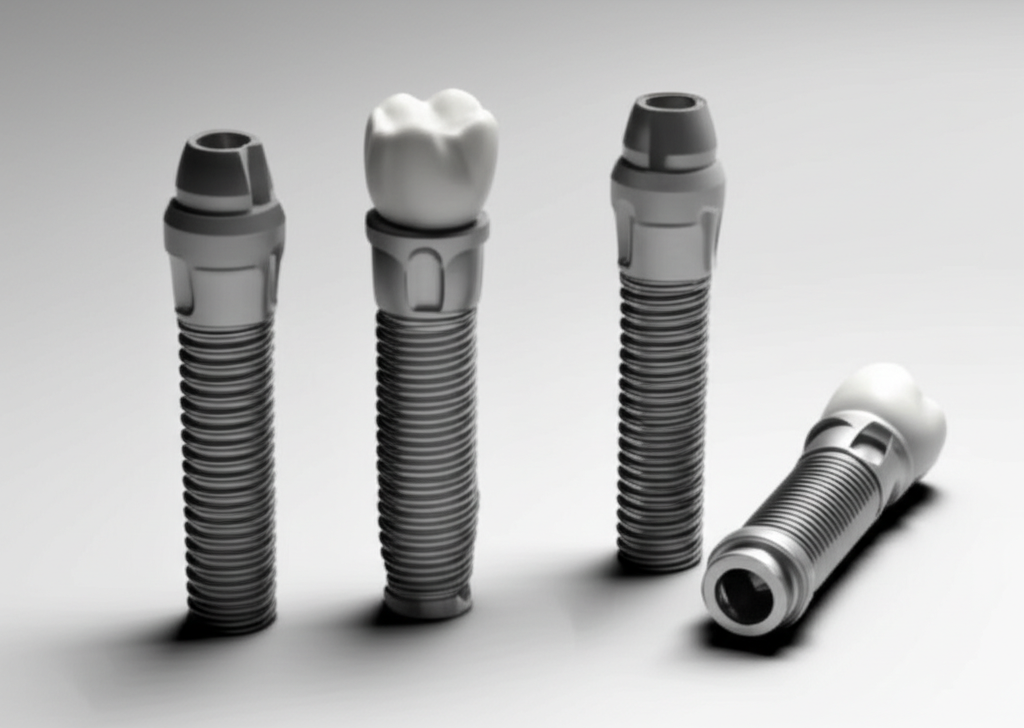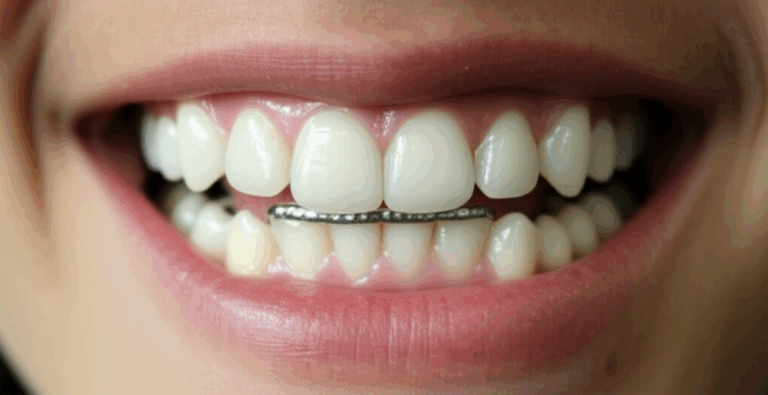
Does Tricare For Life Cover Dental Implants? Understanding Your Options and Costs
If you’re a military retiree on Tricare For Life and you want to know if dental implants are covered, you’re not the only one asking. Dental work, especially something big (and pricey) like implants, can be super confusing. I’ve gone through it myself. Let me give you what I found—straight and simple. No sugarcoating, no fancy language, just the facts about what Tricare For Life will (and won’t) do, and how you can get coverage if you need it.
Table of Contents
- Does Tricare For Life Cover Dental Implants? A Direct Answer
- What is Tricare For Life (TFL) and Its Core Coverage?
- Why Dental Implants Are Typically Not Covered by Tricare For Life
- Rare Exceptions: When Tricare Might Cover Dental Procedures
- Your Best Options for Dental Implant Coverage with Tricare For Life
- 1. FEDVIP (Federal Employees Dental and Vision Insurance Program)
- 2. Department of Veterans Affairs (VA) Dental Benefits
- 3. Private Dental Insurance Plans
- 4. Dental Savings Plans
- 5. Payment Plans & Financing
- Key Factors When Choosing a Dental Plan for Implants
- Understanding the Cost of Dental Implants
- Conclusion: Your Next Steps
- FAQs
Does Tricare For Life Cover Dental Implants? A Direct Answer
Let’s get to it—I’ve looked through policy papers, chatted with my dentist’s office, and sat on hold with Tricare more times than I can count. The answer? No, Tricare For Life does not pay for dental implants. In fact, it doesn’t pay for almost any dental care—no regular check-ups, no fillings, no big procedures like crowns, bridges, or dentures. Tricare For Life pays for medical things, not teeth.
At first, I hoped there was some sort of trick—a special code, a hidden form, a magic word. There isn’t. If you want help with implants, you need extra insurance. I’ll talk about that in a bit.
What is Tricare For Life (TFL) and Its Core Coverage?
Here’s how TFL works (I use it myself). Tricare For Life is a health plan made for military retirees (and some family) who have both Medicare Part A and B. If you turn 65 and can no longer use regular Tricare Standard or Prime, TFL jumps in as your backup after Medicare pays.
But here’s the key: TFL follows Medicare’s rules. And with Medicare, medical care is the most important thing. Dental care, including checkups and fillings, is handled by other programs. The only way you’ll get dental help through TFL is if it’s part of a big medical problem (for example, breaking your jaw and needing surgery).
So TFL pays for doctor visits, surgeries, hospital stays, and medicine. When it comes to teeth—it’s a whole different story.
Why Dental Implants Are Typically Not Covered by Tricare For Life
I used to think, “They must know having no teeth is a big problem!” But Tricare and Medicare see dental implants as extra or just for looks—even if, for most of us, they’re really important. Here’s why:
Medical Need vs. Dental Need
Tricare For Life (and Medicare) say “medical need” means something is required to find or take care of an illness, injury, condition, or their symptoms—based on normal medicine standards. Dental implants are not seen as needed to stay healthy or heal. They’re seen as a big fix or for looks.
What’s Not Covered
I read my benefits guide. Here’s what I (sadly) found:
- Regular cleanings, x-rays, fillings: Not covered.
- Big dental work (crowns, bridges, dentures, implants): Not covered.
- Gum care, root canals, tooth pulling: Not covered unless there’s a big injury or sickness.
- Cosmetic work: Not at all.
If your dental problem is just that—a dental problem—you have to look somewhere else for help.
Rare Exceptions: When Tricare Might Cover Dental Procedures
There are always rare exceptions. I really looked for these because… well, you never know.
After an Accident or Injury
If you have a bad accident—like a fall that breaks your jaw and knocks out teeth—Tricare (and Medicare) might pay for things related to the injury. They might pay for surgery to fix bones, fix your jaw, or hold teeth in place if it’s part of a big surgery.
But—and it’s a big but—getting new teeth with implants, even after an accident, is almost never paid for. They might fix your jaw, but you’re on your own for putting new teeth in.
Special Medical Conditions
In some rare cases, if a dentist has to do something as part of a bigger, covered medical surgery—like fixing your face after cancer or taking out a big infection—there might be some help. But think “face surgery,” not “tooth replaced because eating is hard.”
For almost all retirees (like me), these don’t happen. The answer is almost always—no coverage.
Your Best Options for Dental Implant Coverage with Tricare For Life
So I had to dig for answers. Since TFL won’t pay, what do you do? I found there are a few good choices, each with its pros and cons.
1. FEDVIP (Federal Employees Dental and Vision Insurance Program)
If you remember TRDP (Tricare Retiree Dental Program), pay attention—FEDVIP replaced it starting in 2019.
How FEDVIP Works
FEDVIP gives a choice of dental plans to federal employees, retirees, and yes—military retirees like us. If you’re on Tricare For Life, you can use FEDVIP. These are real insurance, not just discounts.
You sign up once a year during Federal Benefits Open Season (usually November–December).
Comparing Plans
You can pick from companies—Delta Dental, MetLife, United Concordia, GEHA, and more. The choices might feel like a lot, but here’s what I learned to look at:
- Does it pay for implants?
- How much does it pay (common is 50%)?
- What’s the most it pays in a year?
- Are there waiting times (usually a year for implants)?
- Does my dentist take the plan?
For example, when I looked, MetLife’s “High” plan paid 50% for big things (like implants), up to $5,000 each year, but with a waiting time and a small amount you pay first.
Why FEDVIP is My Top Pick
- It’s made for people like us.
- You can easily compare side by side and pick what fits without getting stuck in senior dental plans that don’t work well for retirees.
Learn more about dental materials and how implants are made in this implant dental laboratory resource if you want to know more.
2. Department of Veterans Affairs (VA) Dental Benefits
I checked VA dental because I use VA care too. Here’s what I learned:
Who Gets It
You only get full dental care with the VA if you meet certain, tough rules—usually you need to have a dental problem from service, be 100% disabled through the VA, or have been a prisoner of war. For most, it’s not possible.
But if you do fit, the VA may pay for everything—including implants—for life. Ask your local VA dental office for details.
3. Private Dental Insurance Plans
I checked normal senior dental plans (like AARP or big names like Cigna or Guardian). Here’s what I found:
- Payments each month are usually higher than FEDVIP.
- What they pay for you each year could be lower ($1,000–$2,000 is normal).
- Implant coverage is hit or miss; many don’t pay for it at all.
- Waiting times (one to two years) for big work usually come with the plan.
Sometimes these work, especially if you want to sign up outside of FEDVIP’s open time, but most experts and my own look-around say FEDVIP gives the best deal.
4. Dental Savings Plans
These are not insurance—you pay a yearly fee and get a discount, sometimes pretty big, at dentists who work with the plan.
- No waiting—you save money from the start.
- How much off you get changes from dentist to dentist (maybe 10–40%).
- No limit for how much they’ll save for you.
- What you pay and save can change a lot.
I found that some savings plans brought dental implant costs down lower than just paying cash—if your dentist is in their network. But you’re still paying for most of it yourself.
5. Payment Plans & Financing
Even after insurance, implants can cost a lot. Most dentists get this and let you pay monthly, set up other payment ways with them, or will point you to things like CareCredit.
This doesn’t reduce the total price, but it can help you not have to pay thousands at once. Watch out, though, for interest charges—always read the fine print.
Key Factors When Choosing a Dental Plan for Implants
While I looked for dental plans, I learned there’s more to think about than just “does it cover implants?” Watch out for the small print.
Here’s my simple checklist:
- Waiting Times: Most plans make you wait a year for big work like implants. If you need work now, savings plans could be your only shot.
- Yearly Limit: That’s the most your plan will pay every year. Most plans pay way less than the cost of implants.
- Percentage They Pay: The best plans only pay about half the cost for an implant. You could still pay a lot.
- Deductible & Coinsurance: You often have to pay a little upfront first, then still pay part of every procedure.
- Dentist Network: Make sure your dentist takes the plan. Sometimes the best implant dentists aren’t in-network, which means even higher bills for you.
It’s a lot like buying a used car: Check everything before you pay.
If you want to find out more about how dental labs work behind the scenes, you can check this digital dental lab explainer.
Understanding the Cost of Dental Implants
Let’s talk real costs. When I saw my first implant estimate, I just about fainted. Here’s what you’re facing.
What One Implant Costs
On average, one tooth implant—including the implant, the part that goes in the gum, the new tooth, the surgery, sleep medicine—costs $3,000 to $6,000 at most places in the U.S. If you need extra bone work, add at least another $1,000.
Full-Arch (All-on-4) Implants
If you’re getting a whole row of teeth with “All-on-4” style implants? Plan to pay $20,000 to $50,000 or even more—for one row.
What Your Plan Pays (and Doesn’t)
Even if you have a FEDVIP plan paying half:
- One implant: You’ll still pay $1,500–$3,000 (if you haven’t used up the plan’s whole limit).
- Full row: You’ll use up almost any plan at once, and pay most of the rest yourself.
Other Things That Change the Price
- Where you live: Bigger cities mean bigger prices.
- What type of implant: Materials like titanium vs. zirconia cost more or less.
- Who does the work: The best specialists charge more.
- Checkups after implants: Sometimes, they’re not part of the price you’re told at first.
Dental implants can be very expensive, and even the best insurance will only soften the cost a little.
Conclusion: Your Next Steps
What I learned, easy and honest:
If dental health is important to you—and for military retirees, it often is—getting ready ahead of time is key. Don’t give up. The path is a bit long, but with a little work, you can get the care you need.
FAQs
Does FEDVIP cover dental implants for Tricare For Life people?
Yes, but it depends on the plan. Most best-level FEDVIP dental plans (like MetLife or United Concordia) cover up to 50% of dental implant costs after you wait a year and up to a yearly limit.
How long is the waiting period for dental implants under FEDVIP?
Nearly all plans make you wait one year for big work, like implants.
Can I get VA dental care with Tricare For Life?
Only if you fit the VA’s tough rules (like having a service-connected dental injury, being 100% disabled, etc.). Most people don’t qualify.
How much do dental implants cost out-of-pocket with extra insurance?
You’ll usually pay $1,500–$3,000 for a single implant (if you still have money left in your plan for that year). Full-mouth implants are way more and can quickly go over yearly limits.
What are the usual yearly limits for dental plans that cover implants?
Most plans pay out $1,500–$5,000 per year, even for the high-end FEDVIP plans.
If you want to dig even deeper into dental solutions or how labs make implants or dentures, check out this arch dental lab and this removable denture lab. Learning more can help you (and your dentist) choose the best, most affordable way to get your smile back.
If you found this article helpful, please share it with someone who needs the same info. If you’re facing the implant process or just starting to check your options—don’t be shy to stand up for what you need. Every question you ask gets you closer to the help you deserve. Good luck!








